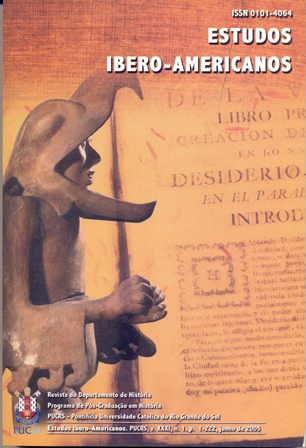German-Argentine, German-Brazilian, German-Chilean: identities debate
DOI:
https://doi.org/10.15448/1980-864X.2005.1.1333Keywords:
Ethnic identity and immigration, Identities in transition, Germans in Argentina, Brazil, and ChileAbstract
During the XIX century and in the pass of the first decades of the XX century, it was stablished projects of German colonization in Brazil, Argentina and Chile. They had big similarities in the three countries, as much in the objectives as in the agrarian structure model, as well as in the rural communities’ organization. It needs to be pointed out in this process the occupation of big regions through a solid population of exclusive German ethnicity. The immigrants and its descendants of the first generations remain faithful to its language and to the German tradition. In that condition, however, of citizens of its respective countries they were assimilated slowly in a bigger society compose by Argentinian, Brazilian or Chilean nations. From this ambiguous situation, it originated starting in the decade of 1930, a discussion in all levels, around the question: After of two, three or till four generations, what we are, what is our identity, are we still Germans and in what way, until what point we will be Chileans, Argentinians or Brazilians? or, who knows and we are not anymore what we were or still we won’t be that what we must be in the future? In another words: what the German immigrant in Chile understands when it calls himself as German-Chilean, or the German immigrant in Argentina, when it calls himself as German-Argentine, or the German immigrant in Brazil, when it calls himself as German-Brazilian?
Downloads
Downloads
Published
How to Cite
Issue
Section
License
Copyright
The submission of originals to Estudos Ibero-Americanos implies the transfer by the authors of the right for publication. Authors retain copyright and grant the journal right of first publication. If the authors wish to include the same data into another publication, they must cite Estudos Ibero-Americanos as the site of original publication.
Creative Commons License
Except where otherwise specified, material published in this journal is licensed under a Creative Commons Attribution 4.0 International license, which allows unrestricted use, distribution and reproduction in any medium, provided the original publication is correctly cited.






